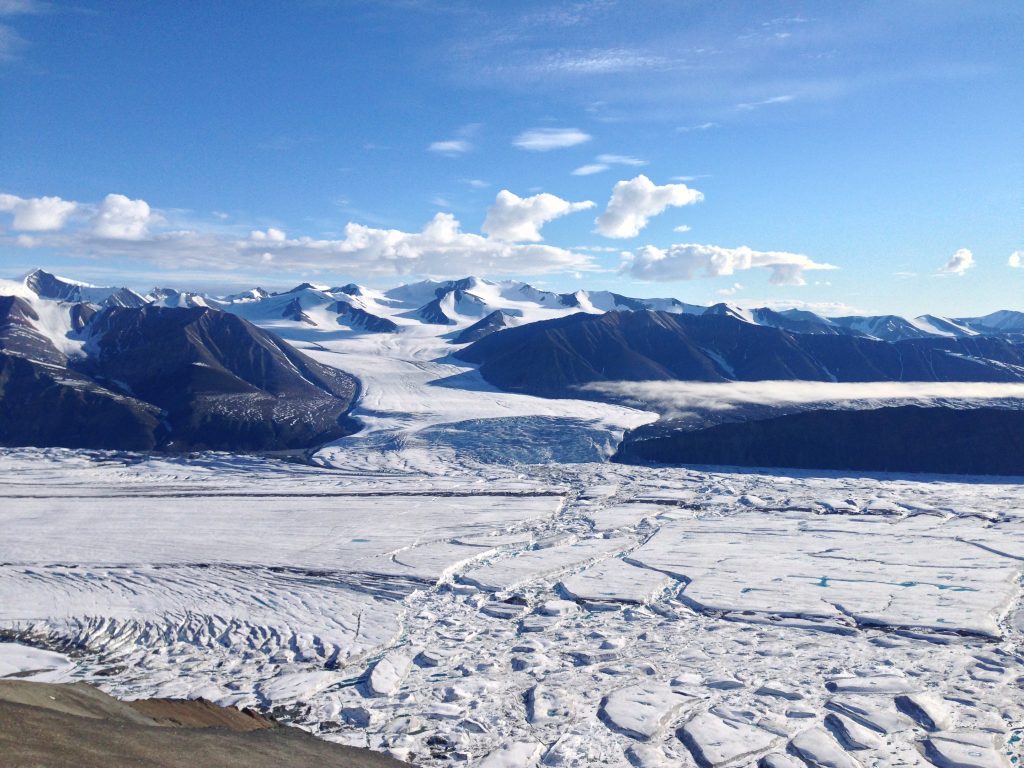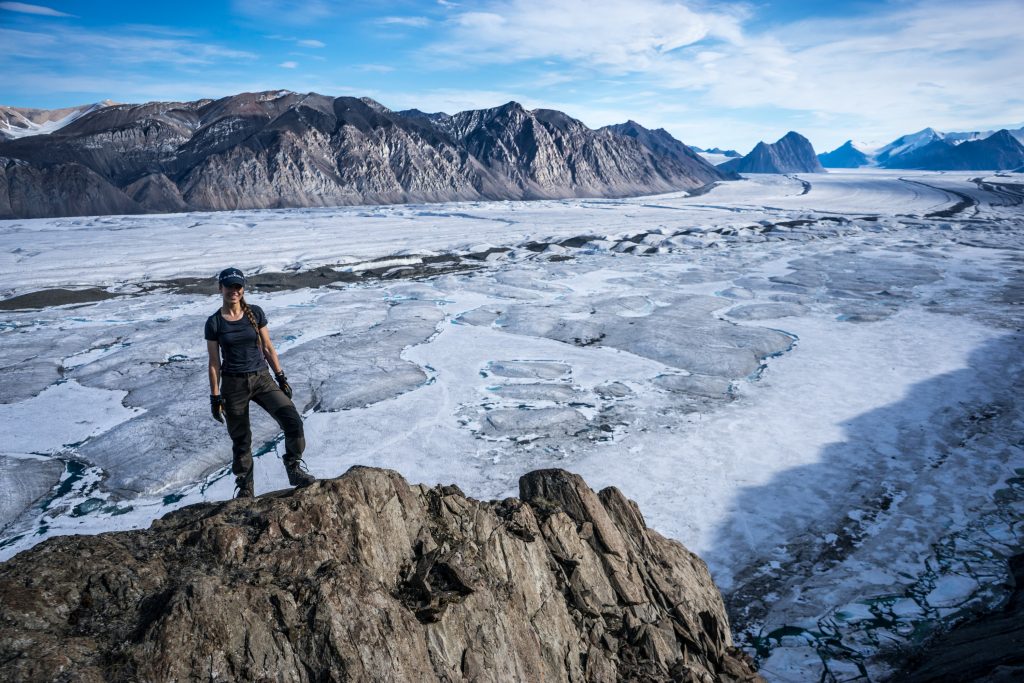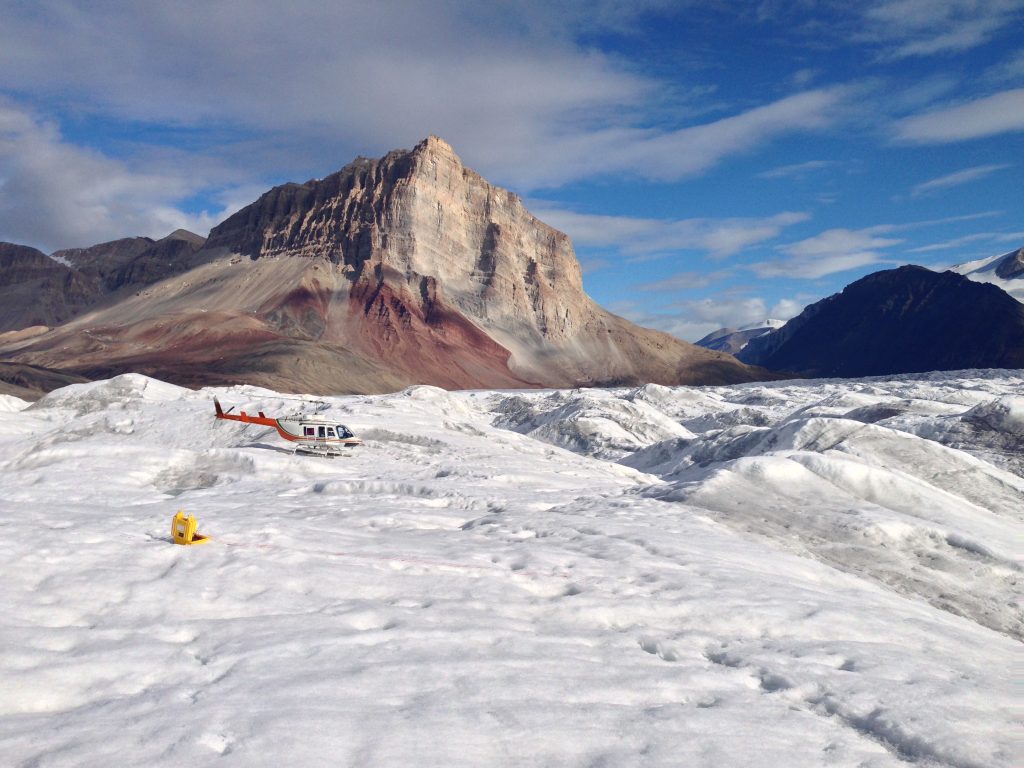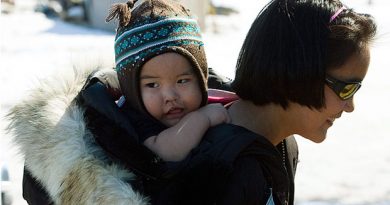Warming Arctic shrinking Canadian glaciers at alarming rate says study

Arctic glaciers are shrinking at an alarming rate and show no signs of regeneration, says a recent study conducted in Canada.
The research looked at glaciers between 1999 and 2015 and focused on Ellesmere Island, the most northern region of the country.
During that sixteen-year period, researchers noted over 1700 square kilometres of ice lost – a change in area of six per cent.
“That shows that over 75 per cent of glaciers have lost area and no glaciers are increasing as far as we can see,” said University of Ottawa Phd student Adrienne White, who authored the paper Area change of glaciers across Northern Ellesmere Island, Nunavut, between ~1999 and ~2015 with Luke Copland which was published in the Journal of Glaciology in June.
‘Big shock’ for researchers
The disappearance of several smaller ice caps and the amount of open water were things that surprised even experienced researchers like White.
“We have three small ice caps – their areas were less than 1.5 square kilometres – but they completely vanished which is something I’ve never really seen before,” White said.
“Another big shock was to see how much open water we now have along the northern coast of Ellesmere Island. In an area where we used to have glaciers flowing into the ocean and having a floating terminus – anywhere where we have that – much of that ice has actually broken off and become icebergs. So in an area that used to be completely covered in sea ice and glacier ice we’re now seeing open water each summer.”
For more on how climate change is transforming Canada’s Arctic, listen to Eye on the Arctic‘s feature interview with Adrienne White, a Phd student from the University of Ottawa’s Laboratory for Cryospheric Research:

Dangerous feedback loop
Although Ellesmere Island may seem remote to many Canadians, what’s happening to its glaciers is already having implications on the environment. There’s been significant increases in sea levels in the Canadian Arctic since 2005 says White, nothing that what’s going on with the Ellesmere glaciers is a contributor.
Researchers say they saw no evidence of glaciers regenerating and that that is unlikely given the island’s sensitive environment.
“For things to reverse, we would need dramatic climate cooling,” says White. “At this point, we’re in a feedback cycle, where because of the loss of sea ice we are now absorbing a lot more warmth into the Arctic region.
“It’s going to be very difficult to reverse.”

Write to Eilís Quinn at eilis.quinn(at)cbc.ca
Related stories from around the North:
Canada: Feds announce funding to tackle climate change in Inuit region of Atlantic Canada, Eye on the Arctic
Greenland: Glacier half the size of Manhattan breaks off Greenland, CBC News
Norway: Northern Barents Sea warming at alarming speed, The Independent Barents Observer
Russia: Densely-packed ice makes navigation difficult in Russian Arctic, The Independent Barents Observer
Sweden: Swedish icebreaker heading for North Pole to study melting sea ice, Radio Sweden
United States: Rapid Arctic warming is increasing the frequency of blizzards in U.S. Northeast: study, Radio Canada International



